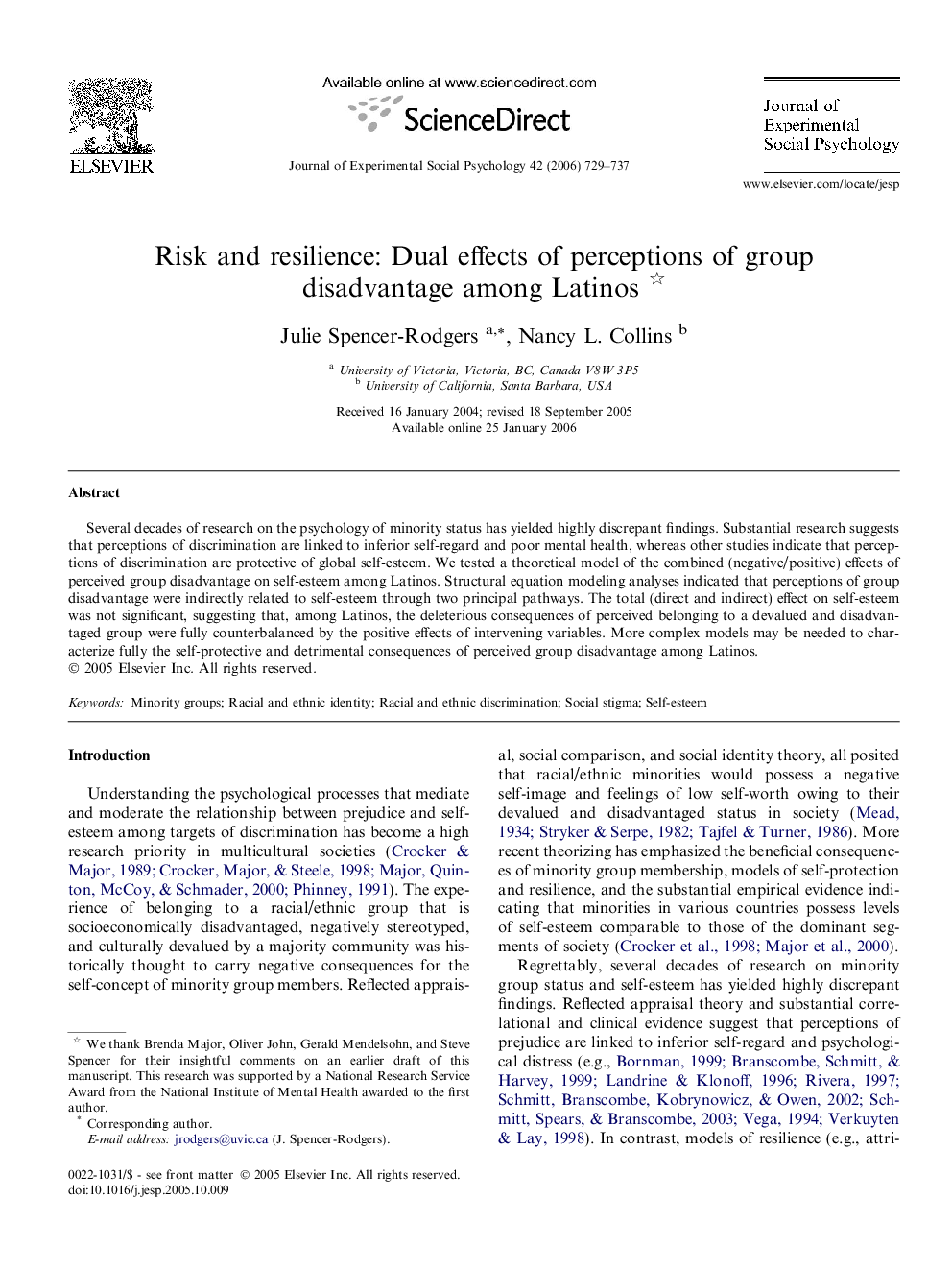| Article ID | Journal | Published Year | Pages | File Type |
|---|---|---|---|---|
| 948563 | Journal of Experimental Social Psychology | 2006 | 9 Pages |
Several decades of research on the psychology of minority status has yielded highly discrepant findings. Substantial research suggests that perceptions of discrimination are linked to inferior self-regard and poor mental health, whereas other studies indicate that perceptions of discrimination are protective of global self-esteem. We tested a theoretical model of the combined (negative/positive) effects of perceived group disadvantage on self-esteem among Latinos. Structural equation modeling analyses indicated that perceptions of group disadvantage were indirectly related to self-esteem through two principal pathways. The total (direct and indirect) effect on self-esteem was not significant, suggesting that, among Latinos, the deleterious consequences of perceived belonging to a devalued and disadvantaged group were fully counterbalanced by the positive effects of intervening variables. More complex models may be needed to characterize fully the self-protective and detrimental consequences of perceived group disadvantage among Latinos.
